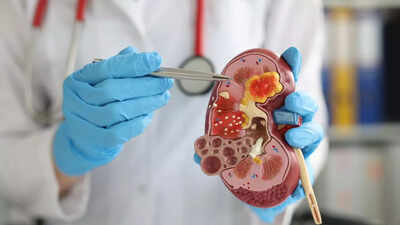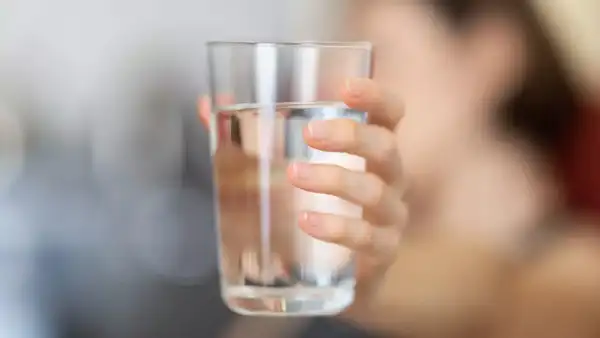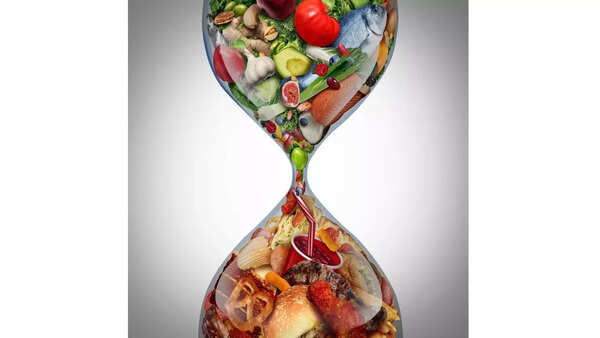10 Everyday habits that could lead to kidney damage without you knowing |

Your kidneys are essential for filtering waste, balancing body fluids, and managing blood pressure—yet they’re often overlooked in daily health routines. Surprisingly, many common lifestyle habits may be silently damaging these vital organs over time. From overusing painkillers to eating too much salt or processed food, even seemingly harmless choices can strain your kidneys. Add in poor hydration, lack of sleep, or excessive protein, and the risks multiply. Fortunately, small, conscious changes can make a big difference. According to the National Kidney Foundation, here are 10 everyday habits that may contribute to kidney damage and offer practical tips to protect and support long-term kidney health.
Kidney damage can start with these daily habits
Overusing painkillers
Nonsteroidal anti-inflammatory drugs (NSAIDs) like ibuprofen and aspirin are widely used to ease aches, inflammation, or fever. But frequent or high-dose use—especially without medical guidance—can reduce blood flow to the kidneys and potentially lead to long-term damage. This risk is even higher for people already living with kidney disease. To protect your kidneys, use NSAIDs sparingly and never exceed the recommended dosage.
Eating too much salt
Excess sodium is a known contributor to high blood pressure, one of the leading causes of kidney damage. Most of this salt doesn’t come from the salt shaker but from processed and packaged foods. Over time, high sodium levels can strain kidney function. Try seasoning meals with herbs, lemon juice, or garlic to reduce your salt intake without sacrificing flavor.
Consuming too many processed foods
A 2022 study revealed that diets heavy in ultra-processed foods can increase the risk of chronic kidney disease by 24%. These foods are high in sodium, unhealthy fats, added sugars, and chemical additives—yet low in fiber and essential nutrients. Swap them out for whole foods like fresh vegetables, fruits, legumes, and whole grains to support kidney and overall health.

Not drinking enough water
Water helps your kidneys remove toxins through urine. Dehydration, especially during intense activity or hot weather, can lead to kidney stones or impair how well your kidneys filter waste. While those with late-stage kidney disease may need to limit fluid intake, most people should aim for 6 to 8 glasses of water a day. Always consult your doctor to determine what’s right for you.
Skimping on sleep
Your kidneys, like the rest of your body, follow a daily rhythm. Sleep regulates hormones that affect kidney function and fluid balance. Chronic sleep deprivation has been linked to higher risks of high blood pressure and kidney problems. Prioritize 7–8 hours of quality sleep each night to give your kidneys time to recover and regenerate.
Eating too much protein
Protein is essential for health, but excessive consumption—especially from red meat—can put extra stress on your kidneys. Animal proteins produce waste products that kidneys must filter out. In people with pre-existing kidney conditions, this burden can accelerate damage. Opt for lean proteins like fish or plant-based alternatives, and talk to your healthcare provider about how much protein is appropriate for you.
Overindulging in sugar
Consuming too much sugar can lead to weight gain, obesity, and eventually diabetes—all of which increase your risk of kidney disease. Added sugars are found not just in sweets but in seemingly healthy foods like flavored yogurt, breakfast cereals, and sauces. Reading nutrition labels and cutting back on sugary drinks and snacks can help safeguard your kidneys.
Smoking
Smoking doesn’t just harm your lungs and heart—it also affects your kidneys. Nicotine can impair blood flow and damage kidney tissue. Additionally, smokers are more likely to have protein in their urine, a marker of kidney damage. Quitting smoking can significantly reduce your risk and improve your overall health.
Drinking too much alcohol
Heavy alcohol consumption disrupts how kidneys regulate fluid and electrolytes in your body. It can also dehydrate you, increase blood pressure, and worsen liver health—making your kidneys work harder. Moderate drinking is generally considered one drink per day for women and two for men. Anything beyond that may raise your risk of kidney and liver complications.
Living a sedentary lifestyle
Lack of physical activity is linked to weight gain, poor circulation, and higher blood pressure—all of which can negatively impact kidney health. Regular exercise helps manage weight and cholesterol and improves heart and kidney function. Even light activities like walking, stretching, or yoga can benefit your kidneys when done consistently.
Key lifestyle habits that can prevent kidney damage naturally

- Stay well-hydrated: Drinking enough water helps your kidneys flush out waste and prevent kidney stones.
- Eat more whole foods: Focus on fruits, vegetables, whole grains, and home-cooked meals instead of processed or salty foods.
- Limit salt and sugar intake: Reducing sodium and added sugars can help control blood pressure and lower your risk of diabetes—both major causes of kidney disease.
- Be mindful of medications: Avoid overusing NSAIDs (like ibuprofen) and always follow dosage instructions.
- Prioritise quality sleep: Your kidneys rely on a regular sleep-wake cycle to function efficiently.
- Stay physically active: Regular exercise helps regulate blood pressure, manage weight, and improve overall kidney function.
- Monitor protein consumption: While protein is important, too much—especially from animal sources—can burden your kidneys, especially if you already have kidney concerns.
- Avoid smoking and limit alcohol: Smoking reduces blood flow to your kidneys; excessive alcohol can dehydrate and strain them.
- Get regular checkups: Especially if you have high blood pressure, diabetes, or a family history of kidney issues.
Also Read | This superfood could be the cheapest way to eat healthier and it’s already in your kitchen






